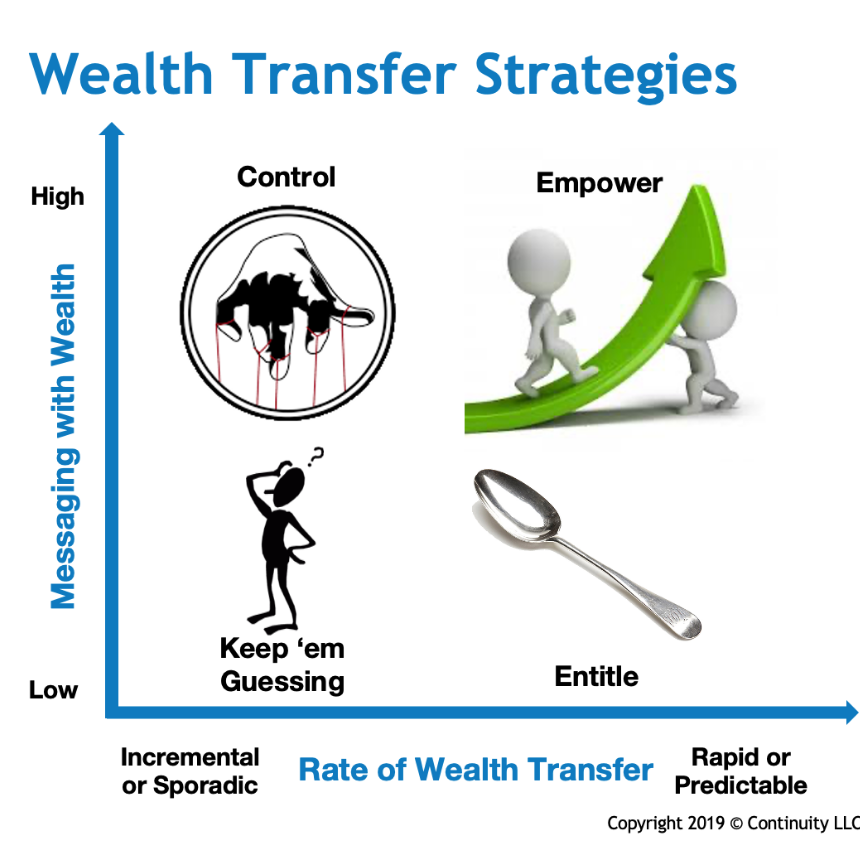
Fidelity guidelines can be used to help you make informed decisions about your retirement and ensure your plan is on the right track. These guidelines are built on four interrelated metrics, which include your age and your pretax income. Your current savings and volatility in asset allocation. They are designed to provide you with a starting point for your retirement journey, but should be customized to your personal situation.
The guidelines suggest that you save at least three times your annual salary during the early years of your career, and up to eight times your salary at the age of 60. An advisor is an excellent resource if you have any questions about saving or how much. It is important to save as much money as possible and use your money wisely.

Fidelity also recommends increasing your savings rate over the fifteen years that lead to retirement. You should save 45% of your income before taxes to retire. Fidelity recommends diversifying your investments with dividend-paying stocks as well as certificates of deposits, bonds, and certificates of deposit. These investments will provide steady income through retirement. As you get closer to retirement, Fidelity recommends adding investments based on your risk tolerance and savings habits.
Fidelity suggests you save at least 10 percent of your salary by the age of 67. Fidelity suggests that you aim to save at most $45,000 per year if you currently earn $50,000 per annum. These guidelines do not take into account other retirement expenses, such as long-term care or medical bills. Deferring a portion your salary to a retirement plan (401(k)) can help you increase your retirement savings. A savings account at work can be used to make a catch up contribution of up $6,500 for 2022.
Fidelity provides a variety of financial planning services that will help you reach your financial goals. Fidelity can help you avoid an IRA-to-IRA transfer, assist you in building a financial plan, and even help you to maintain it. They can help you understand how the market reacts and your long-term objectives. These resources are freely available.
Fidelity provides tools that can help you monitor and manage your financial plan. For example, the myFiTage tool uses your current financial goals and savings behavior to help you identify your Financial Independence Target Age. Fidelity offers MyFiTage for free. It allows you monitor your savings as well as personal expenses. This helps you keep your plan on track and provide you with long-term savings.

Fidelity recommends that you save at least three times your annual salary for retirement. You should also consider saving for health care costs in retirement. While a HSA (health savings account) is one option to help you save, traditional Medicare is another. Medicare offers health care coverage to retirees age 65 and older. Medicare costs include prescription drugs and doctor visits. Medicare premiums make up a portion of total costs for health care.
FAQ
How much debt can you take on?
It is vital to realize that you can never have too much money. You'll eventually run out cash if you spend more money than you earn. It takes time for savings growth to take place. So when you find yourself running low on funds, make sure you cut back on spending.
But how much is too much? While there is no one right answer, the general rule of thumb is to live within 10% your income. You'll never go broke, even after years and years of saving.
This means that you shouldn't spend more money than $10,000 a year if your income is $10,000. Spend less than $2,000 per monthly if you earn $20,000 a year. And if you make $50,000, you shouldn't spend more than $5,000 per month.
It is important to get rid of debts as soon as possible. This includes student loans and credit card bills. When these are paid off you'll have money left to save.
It's best to think about whether you are going to invest any of the surplus income. If the stock market drops, your money could be lost if you put it towards bonds or stocks. But if you choose to put it into a savings account, you can expect interest to compound over time.
Let's suppose, for instance, that you put aside $100 every week to save. Over five years, that would add up to $500. In six years you'd have $1000 saved. In eight years you would have almost $3,000 saved in the bank. By the time you reach ten years, you'd have nearly $13,000 in savings.
In fifteen years you will have $40,000 saved in your savings. This is quite remarkable. But if you had put the same amount into the stock market over the same time period, you would have earned interest. Instead of $40,000, you'd now have more than $57,000.
It's crucial to learn how you can manage your finances effectively. Otherwise, you might wind up with far more money than you planned.
Why is personal finance important?
A key skill to any success is personal financial management. We live in a world where money is tight, and we often have to make difficult decisions about how to spend our hard-earned cash.
Why then do we keep putting off saving money. Is there something better to invest our time and effort on?
The answer is yes and no. Yes, most people feel guilty saving money. Because the more money you earn the greater the opportunities to invest.
You'll always be able justify spending your money wisely if you keep your eyes on the bigger picture.
Controlling your emotions is key to financial success. If you are focusing on the negative aspects of your life, you will not have positive thoughts that can support you.
Also, you may have unrealistic expectations about the amount of money that you will eventually accumulate. This is because you aren't able to manage your finances effectively.
These skills will prepare you for the next step: budgeting.
Budgeting refers to the practice of setting aside a portion each month for future expenses. Planning will save you money and help you pay for your bills.
Now that you are able to effectively allocate your resources, you can look forward to a brighter future.
What side hustles are most lucrative in 2022?
To create value for another person is the best way to make today's money. If you do it well, the money will follow.
Although you may not be aware of it, you have been creating value from day one. When you were a baby, you sucked your mommy's breast milk and she gave you life. You made your life easier by learning to walk.
You will always make more if your efforts are to be a positive influence on those around you. In fact, the more you give, the more you'll receive.
Everyone uses value creation every day, even though they don't know it. You're creating value all day long, whether you're making dinner for your family or taking your children to school.
Today, Earth is home for nearly 7 million people. Each person creates an incredible amount of value every day. Even if you only create $1 worth of value per hour, you'd be creating $7 million dollars a year.
That means that if you could find ten ways to add $100 to someone's life per week, you'd earn an extra $700,000 a year. Think about that - you would be earning far more than you currently do working full-time.
Let's suppose you wanted to increase that number by doubling it. Let's say you found 20 ways to add $200 to someone's life per month. Not only would this increase your annual income by $14.4 million, but it also makes you extremely rich.
Every day, there are millions upon millions of opportunities to create wealth. This includes selling ideas, products, or information.
Although we tend to spend a lot of time focusing on our careers and income streams, they are just tools that allow us to achieve our goals. Helping others achieve theirs is the real goal.
You can get ahead if you focus on creating value. You can start by using my free guide: How To Create Value And Get Paid For It.
What is personal financial planning?
Personal finance means managing your money to reach your goals at work and home. This involves knowing where your money is going, what you can afford, as well as balancing your wants and needs.
You can become financially independent by mastering these skills. That means you no longer have to depend on anyone for financial support. You won't have to worry about paying rent, utilities or other bills each month.
And learning how to manage your money doesn't just help you get ahead. It makes you happier. Positive financial health can make it easier to feel less stressed, be promoted more quickly, and live a happier life.
So who cares about personal finance? Everyone does! Personal finance is one of the most popular topics on the Internet today. Google Trends has shown that searches for personal finance have increased 1,600% from 2004 to 2014.
Today's smartphone users use their phones to compare prices, track budgets and build wealth. They read blogs like this one, watch videos about personal finance on YouTube, and listen to podcasts about investing.
Bankrate.com estimates that Americans spend on average 4 hours per day viewing TV, listening to music and playing video games, as well reading books and talking with friends. That leaves only two hours a day to do everything else that matters.
Personal finance is something you can master.
How to build a passive income stream?
To earn consistent earnings from the same source, it is important to understand why people make purchases.
This means that you must understand their wants and needs. You must learn how to connect with people and sell to them.
The next step is to learn how to convert leads in to sales. To keep clients happy, you must be proficient in customer service.
You may not realize this, but every product or service has a buyer. Knowing who your buyer is will allow you to design your entire company around them.
It takes a lot of work to become a millionaire. You will need to put in even more effort to become a millionaire. Why? Why?
And then you have to become a millionaire. You can also become a billionaire. The same applies to becoming a millionaire.
So how does someone become a billionaire? It all starts with becoming a millionaire. All you have do is earn money to get there.
You must first get started before you can make money. Let's take a look at how we can get started.
What's the difference between passive income vs active income?
Passive income can be defined as a way to make passive income without any work. Active income requires effort and hard work.
Your active income comes from creating value for someone else. When you earn money because you provide a service or product that someone wants. For example, selling products online, writing an ebook, creating a website, advertising your business, etc.
Passive income is great as it allows you more time to do important things while still making money. However, most people don't like working for themselves. People choose to work for passive income, and so they invest their time and effort.
Passive income isn't sustainable forever. If you are not quick enough to start generating passive income you could run out.
If you spend too long trying to make passive income, you run the risk that your efforts will burn out. Start now. You will miss opportunities to maximize your earnings potential if you put off building passive income.
There are 3 types of passive income streams.
-
Businesses - these include owning a franchise, starting a blog, becoming a freelancer, and renting out the property such as real estate
-
Investments include stocks, bonds, mutual funds, ETFs, and ETFs.
-
Real Estate includes flipping houses, purchasing land and renting properties.
Statistics
- Mortgage rates hit 7.08%, Freddie Mac says Most Popular (marketwatch.com)
- According to a June 2022 NerdWallet survey conducted online by The Harris Poll. (nerdwallet.com)
- Etsy boasted about 96 million active buyers and grossed over $13.5 billion in merchandise sales in 2021, according to data from Statista. (nerdwallet.com)
- Shares of Six Flags Entertainment Corp. dove 4.7% in premarket trading Thursday, after the theme park operator reported third-quarter profit and r... (marketwatch.com)
- According to the company's website, people often earn $25 to $45 daily. (nerdwallet.com)
External Links
How To
For cash flow improvement, passive income ideas
It is possible to make money online with no hard work. Instead, there are passive income options that you can use from home.
You may already have an existing business that could benefit from automation. Automating parts of your business workflow could help you save time, increase productivity, and even make it easier to start one.
The more automated your business becomes, the more efficient it will become. This allows you to spend more time growing your business than managing it.
Outsourcing tasks is a great method to automate them. Outsourcing allows you and your company to concentrate on what is most important. By outsourcing a task you effectively delegate it to another party.
You can concentrate on the most important aspects of your business and let someone else handle the details. Outsourcing helps you grow your business by removing the need to manage the small details.
Turn your hobby into a side-business. It's possible to earn extra cash by using your skills and talents to develop a product or service that is available online.
If you like writing, why not create articles? There are plenty of sites where you can publish your articles. These sites allow you to earn additional monthly cash because they pay per article.
Making videos is also possible. Many platforms now enable you to upload videos directly to YouTube or Vimeo. When you upload these videos, you'll get traffic to both your website and social networks.
Stocks and shares are another way to make some money. Investing in stocks and shares is similar to investing in real estate. However, instead of paying rent, you are paid dividends.
These shares are part of your dividend when you purchase shares. The size of the dividend you receive will depend on how many stocks you purchase.
If your shares are sold later, you can reinvest any profits back into purchasing more shares. You will still receive dividends.